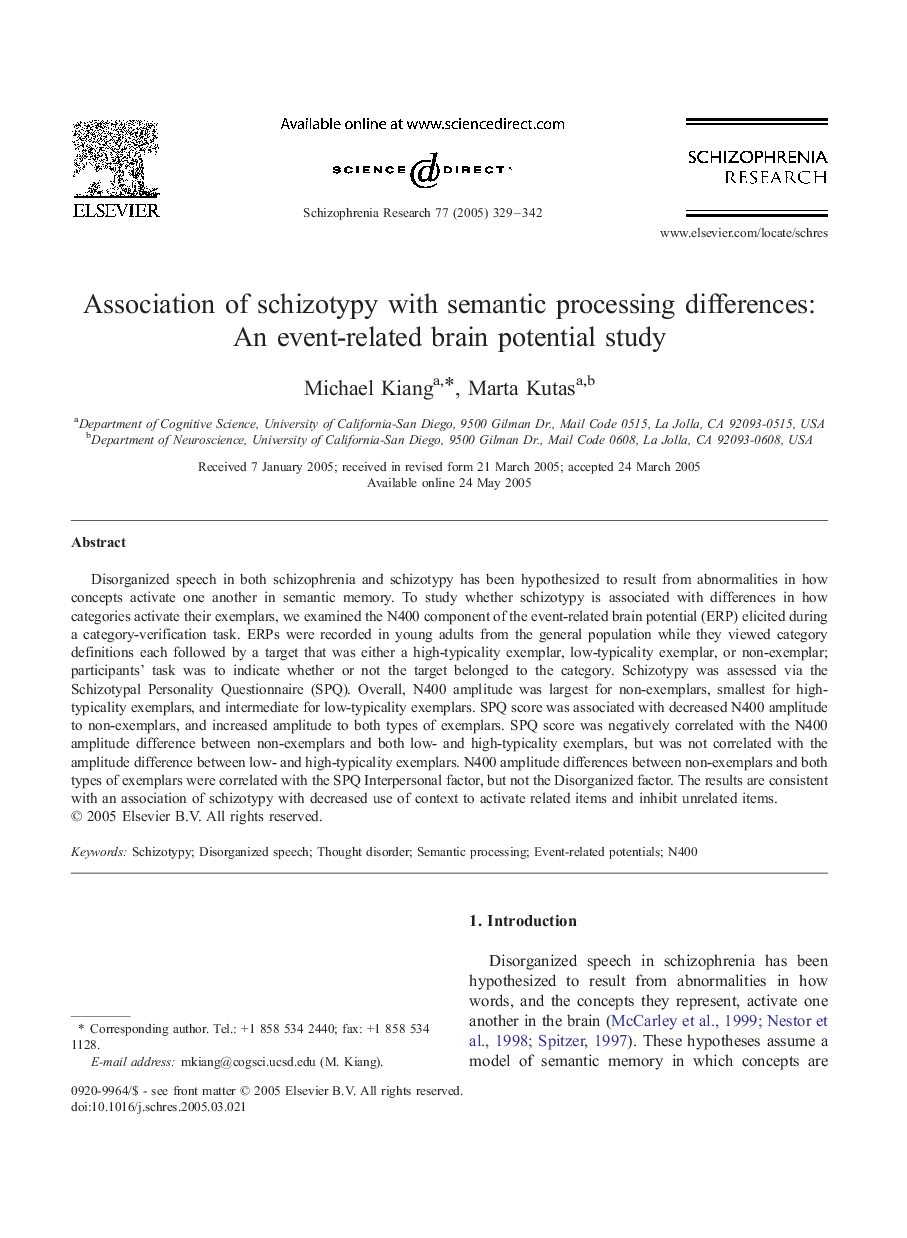| Article ID | Journal | Published Year | Pages | File Type |
|---|---|---|---|---|
| 9646375 | Schizophrenia Research | 2005 | 14 Pages |
Abstract
Disorganized speech in both schizophrenia and schizotypy has been hypothesized to result from abnormalities in how concepts activate one another in semantic memory. To study whether schizotypy is associated with differences in how categories activate their exemplars, we examined the N400 component of the event-related brain potential (ERP) elicited during a category-verification task. ERPs were recorded in young adults from the general population while they viewed category definitions each followed by a target that was either a high-typicality exemplar, low-typicality exemplar, or non-exemplar; participants' task was to indicate whether or not the target belonged to the category. Schizotypy was assessed via the Schizotypal Personality Questionnaire (SPQ). Overall, N400 amplitude was largest for non-exemplars, smallest for high-typicality exemplars, and intermediate for low-typicality exemplars. SPQ score was associated with decreased N400 amplitude to non-exemplars, and increased amplitude to both types of exemplars. SPQ score was negatively correlated with the N400 amplitude difference between non-exemplars and both low- and high-typicality exemplars, but was not correlated with the amplitude difference between low- and high-typicality exemplars. N400 amplitude differences between non-exemplars and both types of exemplars were correlated with the SPQ Interpersonal factor, but not the Disorganized factor. The results are consistent with an association of schizotypy with decreased use of context to activate related items and inhibit unrelated items.
Related Topics
Life Sciences
Neuroscience
Behavioral Neuroscience
Authors
Michael Kiang, Marta Kutas,
